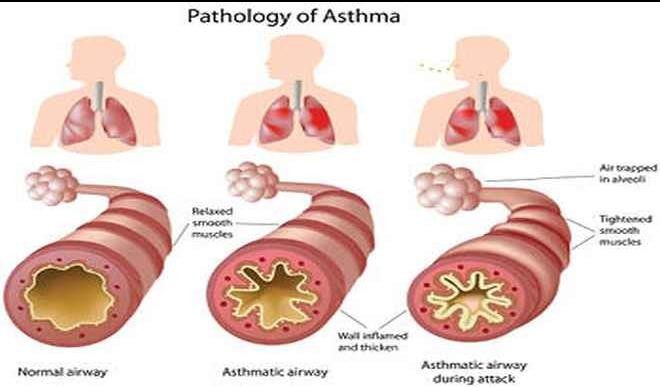The Nigerian Thoracic Society (NTS) on Tuesday in Abuja said that no fewer than 15 million people have Asthma in Nigeria, based on numerous studies.
Dr Olanisun Adewole, Secretary General (NTS), made the disclosure in a statement made available to the News Agency of Nigeria (NAN) in commemoration of 2019 World Asthma Day.
World Asthma Day is an annual event organised by the Global Initiative for Asthma (GINA) to improve asthma awareness and care around the world. World Asthma Day takes place on the first Tuesday of May.
Adewole described Asthma as one of the most common chronic lung diseases affecting no fewer than 400 million people worldwide.
He added that with increasing urbanisation and uptake of western lifestyle in developing countries, the number of people with asthma would grow by more than 100 million by 2025.
He said that the annual event was organised by Global Initiative for Asthma (GINA) and other partners across the globe to increase asthma awareness and care worldwide.
Adewole said that the theme for the 2019 World Asthma Day is: “STOP for Asthma”, noting that the STOP stands for Symptom evaluation, Test response, Observe and Assess and Proceed to adjust treatment.
“This is unique as it addresses everyone and highlights key steps to keep asthma under control.
“Importantly, the theme underscores the importance of adequate procedure and guideline in asthma management,” Adewole said.
The expert explained that Asthma was one of the most common chronic diseases in children, a condition that millions of people who have it, have to deal with on a daily basis.
Adewole said the condition was characterised by recurring respiratory symptoms, such as coughing, wheezing, shortness of breath and chest tightening.
The symptoms, he said, were variable and could fluctuate for each individual over time.
He said Asthma was a heterogeneous disease, adding that education involving patients, care givers and health care workers would help to reduce frequency and severity of symptoms.
Adewole said it was important for individuals to undertake a systematic evaluation process required to ensure proper diagnosis, as such would reduce the rate of under-diagnosis and sometimes over-diagnosis. (NAN)

 Join Daily Trust WhatsApp Community For Quick Access To News and Happenings Around You.
Join Daily Trust WhatsApp Community For Quick Access To News and Happenings Around You.


